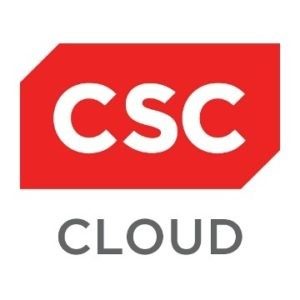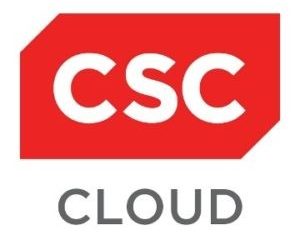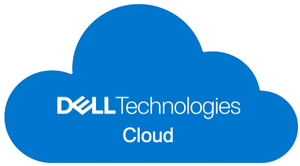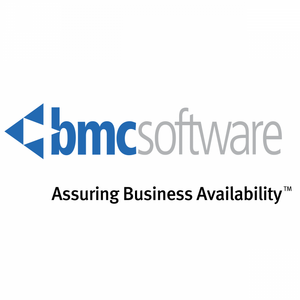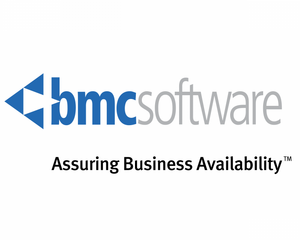Most enterprise organizations rely on cloud computing as an integral part. In fact, 81 percent of all enterprises have a multi-cloud strategy or plan to do so. This is a phenomenal percentage, which is why the average person now accesses around 36 cloud-based applications and services daily. So, it behooves organizations and companies to use cloud products whenever possible. Both large and small businesses use cloud platforms with significant cost benefits.
Cloud computing, or “the Cloud,” as people refer to it, is simply on-demand computing services. Customers purchase or use these computing services over a private network, Internet, or a hybrid network. These services include storage, applications, processors, virtual networks, and much more, billed monthly or on a pay-as-you-go plan.
Most organizations find some form of cloud computing to be attractive to their business models because of the cost and simplicity. Using the computing resources only when one needs to and paying only for their use is attractive because companies no longer have to purchase large servers and hire an entire IT department to provide the same services. Due to regulations or security requirements, organizations that need their hardware in-house still find cloud computing useful because of its flexibility and resource management. Still, others have found hybrid models, which allow a mixture of private and public cloud services to work well.
Whether a company chooses public, private, or hybrid cloud solutions, they must use the best cloud management software for their needs.
What is Cloud Management Software?
When it comes to using a cloud-based solution, most organizations opt for cloud management software. Cloud management software manages cloud applications and resources in an easy-to-use package. Companies use cloud management software to provide the necessary cost savings, integration, and agility that they might not get with multiple cloud resources. Cloud management software is an essential part of using cloud-based solutions, enabling systems administrators to seamlessly integrate cloud applications and resources as well as automate critical tasks and provide metrics on cloud usage.
Cloud management software easily manages private clouds, public clouds, and hybrid clouds, allowing systems administrators to tailor the cloud services to the required tasks the company needs. Because cloud management software provides a layer over the cloud resources, applications, storage, data collection, virtual networks, and clouding processing, cloud resources can interact with each other using a standardized interface.
Cloud management software provides automation for recurrent tasks, thus providing a more agile platform that needs minimal oversight. For example, system administrators can set up the cloud management software to manage a customer interface for online ordering. When a customer purchases an item, the cloud management software can alert the inventory tracking application, the customer payment application, data storage, and the shipping application without human interaction. The cloud management software can also track each cloud resource and provide metrics back to the administrators to understand better how the system uses the cloud resources and whether they need to make adjustments.
Why should companies consider Cloud Management Software?
If a company uses cloud-based solutions in any meaningful way, it should use cloud management software. Cloud management software improves integration, provides an agile response, facilitates automation, provides interfaces and backup to critical data, and provides much-needed metrics. Those who commit to using cloud-based solutions need to ensure that they are not wasting valuable resources on a failed solution. Cloud management software bridges the gaps between cloud resources and enables system administrators to control the overall process to ensure the task is done correctly.
When planning cloud-based solutions, organizations need to plan cloud management software into their overall budget to maximize their investment.
How does Cloud Management Software Work?
Cloud management software often works on a virtual machine or VM platform with its own virtual server and database. It provides the necessary application programming interfaces or APIs to communicate with the cloud computing services. The VM platform often sits on top of an operating system that’s designed to run that particular virtual machine/cloud management software. The physical computer can be the host to many virtual machines, depending on its processing power.
The cloud management software isn’t the cloud, but rather it is the controller of the resources necessary to complete the task. Because the cloud management software is scalable, a company can add or delete cloud-based solutions as required. For example, a company might add a customer rewards app that keeps track of the customer purchases and when they receive a reward. Developers can modify the cloud management software easily to include that app.
Features, Functions, and Capabilities of Cloud Management Software
Cloud management software is capable of providing the following functions:
- Scalability — Cloud management software can grow or shrink cloud services to fit a company’s needs.
- Flexibility — Cloud management software can adapt to a variety of different networking models and cloud-based services.
- Performance Monitoring — Cloud management software can provide data on the cloud-based services enabling systems administrators to modify services that will work.
- Agility — Cloud management software allows quick reaction to the changing business needs.
- Simplify Tasks — Cloud management software provides a more straightforward way of organizing and executing tasks. It gives system administrators the ability to both manage and modify the tasks efficiently.
- Automation — Cloud management software facilitates automation of repetitive tasks.
- Data Backup and Gathering — Cloud management software provides an easy way to back up data and obtain metrics on customers and cloud usage.
- Reduces Cost — Cloud management software enables cost reduction by using only those services required. May reduce the number of IT personnel necessary to maintain the product.
- Distributed — Cloud management software can manage cloud-based services on various platforms and with different third-party vendors.
Pros and Cons of Cloud Management Software
Cloud management software has plenty of pros, as one can see by the list of features, functions, and capabilities. The biggest pro is that it allows management of the cloud-based services. It enables IT to create interfaces between different services using its API easily. It is highly adaptable to changes to your web-based products and services. Some cloud management software companies have integrated their own choices for databases and servers, allowing companies to integrate their own private and public networks into a seamless design. The company’s goals will define which cloud management software is right for that company’s particular application. Should the company or organization decide to change in the future may require a different cloud management software to handle the new requirements.
Many of the cons concerning cloud management software have to do with using the cloud itself. One potential con is that the cloud management software can be dependent on what tasks the organization is looking to fulfill. Some cloud management software is focused primarily on security; others are focused on providing third-party apps that offer solutions to the company’s needs. Still others are aimed at creating sales platforms for products. In other words, not all cloud management software will satisfy a particular company’s needs.
Another con is that a company must still employ IT professionals to adapt the cloud management software to work with other third-party vendor cloud-based products. Someone must design and implement the automation so that the tasks run according to expectations. Cloud management software may have to reside on the company’s own hardware, requiring updates and replacements. Once choosing a management software, the API is often proprietary and cannot be easily ported to a different vendor’s cloud management software.
There is often a recurring cost for using the management software if the company chooses a cloud-based version. That is in addition to the recurring costs of cloud services. Cloud management software should have some form of security to reduce the risk of hackers and malware, but some have better protection than others.
10 Top Vendors
Many excellent vendors offer cloud management software. When a company looks for the right cloud management software company, they should consider their needs relative to the features offered, rather than just the price. The issues one needs to consider when purchasing cloud management software includes:
- Do they require a server, or is the cloud management software accessible on any computer?
- What kind of security does the cloud management software have?
- Does the cloud management software offer redundancy in case a node or vital component goes down?
- What platforms does the cloud management software company support?
- How many user licenses does the purchase buy?
- Is this a one-time cost, or is this a subscription?
- Who handles the updates of the cloud management software? Are they included in the price?





